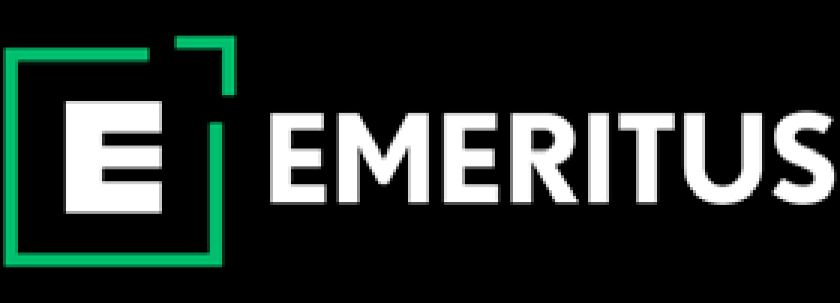How to Become a Successful Healthcare Administrator: A Comprehensive Guide

- What Education and Qualifications are Needed to Become a Healthcare Administrator?
- What are the Typical Job Responsibilities of a Healthcare Administrator?
- What Skills are Important for Success in a Healthcare Administration Career?
- How Can Healthcare Professionals Transition Into a Career in Healthcare Administration?
- What is the Average Salary of a Healthcare Administrator?
- What are Some Current Trends and Challenges Facing Healthcare Administrators?
The healthcare industry in India is booming. In 2023, the market volume of the Indian healthcare sector was valued at $98.98 billion, and it is poised to reach $193.59 billion by 2032. This exponential growth makes healthcare one of the most promising professional fields in India. Now, healthcare services entail a number of jobs with several different tasks and a varying degree of responsibilities. While particular tasks involving treating and attending to the requirements of patients form one side of the spectrum, it is also essential to oversee and coordinate these tasks for the smooth functioning of healthcare facilities. This is where healthcare administrators step in.
In essence, a healthcare administrator supervises and manages a diverse array of administrative jobs in a facility. In addition to the psychological satisfaction of being at the forefront of serving people during their crises, this job also comes with a rewarding career path and attractive salaries. So, who can become a healthcare administrator? What kind of education and skills are required to be recruited for this position? What responsibilities does this role entail? Let’s find out.
What Education and Qualifications are Needed to Become a Healthcare Administrator?

Offering a rewarding career path, healthcare administration has proved to be a sector with immense potential for growth. It is no wonder that many aspirants seek to land a job in this field. However, specific educational criteria must be fulfilled to qualify for this role.
First, irrespective of the stream, you must complete your 10+2 with a cumulative grade of at least 50%. After that, you must complete a bachelor’s degree with particular specializations. For instance, you can do a Bachelor’s in Healthcare Management, often abbreviated as BHM. A BBA (Bachelor of Business Administration) and BHM are regular three-year courses that equip you with the essential leadership and management skills to enter this profession.
However, there is a catch. While it is true that a bachelor’s degree opens doors to various entry-level positions, for career advancement, consider pursuing an MBA in healthcare/hospital administration. A postgraduate degree with a specialization in hospital/healthcare management is greatly valued if you intend to apply for the position of healthcare administrator.
Additionally, becoming a healthcare administrator requires strong and effective leadership skills. Hence, having a diploma or certification course in healthcare leadership can further hone leadership skills and show a commitment to the field, enhancing your career prospects.
ALSO READ: Role of AI in Healthcare: Top 5 Advancements in Clinical Practice
What are the Typical Job Responsibilities of a Healthcare Administrator?
A healthcare facility is an intricate ecosystem. The primary task of a healthcare administration, therefore, is to ensure it operates smoothly under effective leadership. In essence, the job responsibilities of a healthcare administrator comprise overseeing various administrative and operational aspects, guiding employees, and coordinating a diverse range of tasks to ensure streamlined services and enhanced patient care. Let’s take a closer look at what that entails:
1. Leading the Team
From doctors and nurses to administrative staff, a healthcare administrator manages all aspects of human resources. Additionally, various aspects of recruitment, training, and scheduling fall under their job responsibilities, ensuring a competent and well-coordinated team that fosters a harmonious work environment.
2. Ensuring Compliance With Regulatory Guidelines
Medical bodies across the globe often develop new and stringent guidelines to ensure patient care is of the highest quality. Hence, navigating this ever-changing landscape of healthcare regulations is crucial to the role. Moreover, administrators must stay abreast of legislative updates and implement policies that adhere to new standards. As a result, this vigilance safeguards the facility from legal issues and prioritizes patient safety.
3. Financial Operation Skills
The financial health of such a facility rests on the shoulders of the healthcare administrator. For instance, various crucial factors such as efficient allocation of resources, management of expenses, and the financial viability of a facility depend on the administrator. Hence, having essential financial skills such as budgeting, financial planning, and meticulous accounting are non-negotiable for prospective healthcare administrators.
4. Strategizing for Overall Development and Patient Care
The primary task of a healthcare facility consists of ensuring exceptional patient care. As those occupying leadership positions within a facility, a healthcare administrator must be adept at developing strategies and implementing them to enhance service delivery and improve patient outcomes. Hence, administrators in healthcare management must engage in strategic planning, addressing long-term needs such as facility expansions, technology upgrades, adaptations to evolving healthcare trends, and the will to continually exceed the established care standards.
5. Navigating Challenges
Crises are inevitable, and healthcare administrators function as the steady hand that guides the facility through them. For instance, administrators’ jobs require coordinating resource allocation, navigating the administrative complexities of emergency operations, and ensuring services remain uninterrupted.
ALSO READ: The Best Data Science Applications in the Healthcare in India
What Skills are Important for Success in a Healthcare Administration Career?

1. Communication Skills
Good communication skills are very important for healthcare administrators. For instance, they must manage relationships with staff and other people in the facility. As a result, this helps foster strong relationships with staff and other stakeholders within the facility. Also, clear and concise speaking and writing capabilities enable administrators to convey plans, protocols, and policies successfully. Consequently, this ensures that every team member understands the facility’s overall vision and the strategies needed to achieve it.
2. Personal Skills
Important personal skills such as empathy, patience, and adaptability help manage patients and deal with the different requirements of the staff. Thus, having these personal skills assists administrators in understanding and dealing with the delivery of healthcare services, responding to staff concerns with empathy, and adjusting themselves to ever-changing circumstances without diminishing the facility’s performance or employee morale.
3. Leadership Skills
For healthcare administrators, it is crucial to have strong leadership abilities. For instance, they must be able to inspire and guide their teams in reaching the organization’s objectives. Thus, efficient and effective healthcare leadership entails motivating staff members, promoting a team-focused environment, and leading strategic plans to improve healthcare services and operational efficacy.
4. Critical Thinking and Problem-Solving Skills
For a huge system comprising people and machines, it is only normal to suffer glitches or undergo a breakdown of smooth functioning. And the healthcare sector is no exception. Thus, an adept healthcare administrator must exhibit excellent critical thinking and problem-solving skills to assess such situations quickly and formulate effective solutions. Consequently, their ability to process information, anticipate potential challenges and implement timely decisions is crucial for maintaining seamless operations of healthcare delivery.
5. Technological Proficiency
In the technology-driven era that we reside in, keeping abreast of the latest trends and emerging technologies is non-negotiable. With the introduction of sophisticated technological advancements in the healthcare industry, such as artificial intelligence or the Internet of Medical Things (IoMT), administrators must be able to understand and leverage these technologies to enhance patient care and streamline operations. For instance, this might include AI in healthcare IT, augmented and virtual reality, and robotic tools.
6. Regulatory Knowledge
The understanding of healthcare policies, laws, and regulations is very important for someone working in an administrative position within healthcare management. Consequently, this helps to make sure that the facility follows all legal requirements, meets industry standards and keeps a constant high level of care. Moreover, regular training and updates on new regulations are necessary to keep the facility within legal boundaries and at the forefront of healthcare practice.
How Can Healthcare Professionals Transition Into a Career in Healthcare Administration?
If you are a healthcare professional considering moving up the ladder and landing a job as a healthcare administrator, you must concentrate on enhancing crucial management abilities and acquiring pertinent educational credentials. Here is a list of some of the things you will need to consider:
1. Acquiring Formal Education
Obtaining a college degree in healthcare administration or a similar area provides professionals with the appropriate academic foundation and abilities. Hence, if you don’t have formal credentials in any associated field, you might want to consider starting the journey toward becoming an administrator by getting a proper academic degree.
2. Gaining Administrative Experience
Hands-on experience in administrative roles within healthcare settings helps develop essential management capabilities. Therefore, consider learning from experienced professionals to equip yourself with practical field knowledge.
3. Building Leadership Skills
Experience in leading, either in managing positions or through projects, is very important for a smooth change. Apprenticeship and/or certification in a healthcare leadership program can be beneficial.
4. Networking and Mentorship
Making a professional network and finding mentorship can give direction and open doors for jobs in healthcare administration. Hence, focus on building a strong network of experienced peers and healthcare professionals.
5. Certifications and Continuing Education
Getting certifications in healthcare management and doing professional development courses helps to keep skills useful and improve chances for advancement in your career path.
What is the Average Salary of a Healthcare Administrator?
Depending on education, years of experience, and finesse of skills, the average base pay of a healthcare administrator in India ranges between ₹3 to ₹14 lakh per annum.
What are Some Current Trends and Challenges Facing Healthcare Administrators?
A. Trends
To stay updated and succeed as a healthcare administrator, one must keep abreast of the latest industry trends.
1. Remote Patient Monitoring
Healthcare administrators are increasingly adopting remote monitoring to manage patient care more efficiently, making it one of the key industry trends in healthcare administration.
2. Streamlining With Electronic Health Records
The integration of electronic health records continues to streamline data management and improve patient care across healthcare facilities.
3. Growth of Telehealth Services
The expansion of telehealth services is reshaping care delivery, minimizing the need for in-person consultations, and enhancing accessibility.
4. Implementation of Hospital Robotics
Hospital robotics are increasingly employed to perform routine tasks, significantly boosting operational efficiency within healthcare settings.
5. Leveraging Artificial Intelligence
Artificial intelligence is becoming indispensable in healthcare for enhancing diagnostics and streamlining operations management.
6. Focus on Network and Security Enhancements
There is an increased focus on strengthening network security to protect sensitive patient data and prevent cyber threats in healthcare environments.
B. Challenges
Now that we have covered various aspects of the role of a healthcare administrator, let’s look at some of the challenges that these administrators must deal with.
1. Rising Operational Costs
Administrators face the challenge of reducing costs while maintaining high-quality care.
2. Navigating Government Regulations
Staying updated with evolving government regulations is a persistent challenge.
3. Enhancing Patient Satisfaction
Improving patient relationships and satisfaction levels can be difficult.
4. Addressing Staff Shortages
Recruiting and retaining skilled staff in competitive and rural markets continues to challenge administrators.
5. Technology Integration
Effectively managing and integrating new healthcare technologies is critical for modern healthcare environments.
ALSO READ: A Guide to Data Science in Healthcare: Applications
If you are interested in becoming a healthcare administrator and want to acquire the necessary skills for this job, consider joining Emeritus’ tailor-made healthcare management courses and enhance your career prospects in the burgeoning field of healthcare management.
Write to us at content@emeritus.org



